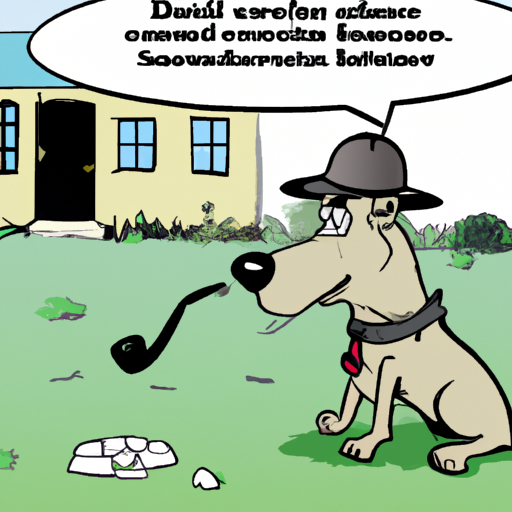Instinctual Behaviors
Hello, friend of man’s best friend. You’ve likely seen your pup enthusiastically dig a hole, drop in a prized bone, and proceed to bury it under a pile of dirt. But why do they do this? It’s all about instinct. Dogs are descendants of wild canines like wolves and foxes. These ancestors didn’t have the luxury of a guaranteed meal every day, so they had to make the most of their kills. This often meant burying leftover bones to hide them from other predators and save them for leaner times. Although your dog is well-fed and safe, the drive to bury bones is still ingrained in their DNA.
The Hunt for the Perfect Spot
- Sense of smell: Dogs have an incredibly acute sense of smell. They use this to their advantage when selecting the perfect spot to bury their bone. They’re looking for a place that doesn’t have the scent of other animals who might steal their treasure.
- Security: Dogs also seek out quiet, secure locations where they’re unlikely to be disturbed during their important work. This is why your dog might bury bones in your garden, under cushions, or in laundry piles.
Bones as Valued Possessions
Bones are more than just a tasty treat for your dog. They represent high-value possessions, something akin to a treasure. Much like we might put our most valued possessions in a safe, dogs bury their bones to keep them safe from potential thieves.
Burying as a Form of Entertainment
Burying bones can also serve as a form of entertainment for dogs. They enjoy the process of digging, hiding, and then rediscovering their bones. It’s a form of play that also satisfies their natural digging and chewing instincts.
Health Implications for Bone Burying
While bone burying is generally harmless, there are some potential health implications to be aware of:
- Chipped teeth: Bones, especially cooked ones, can be hard and may cause your dog’s teeth to chip.
- Digestive issues: Bones can splinter and cause serious digestive issues, including blockages and tears.
- Bacterial contamination: Buried bones can become contaminated with bacteria, which can cause your dog to become sick.
To keep your dog safe, always supervise them when they’re chewing on bones and consider providing them with safer alternatives like dental chews or sturdy, non-toxic toys.
| Potential Risks | Preventive Measures |
|---|---|
| Chipped Teeth | Provide softer chew toys |
| Digestive Issues | Avoid giving cooked bones |
| Bacterial Contamination | Regularly clean up and replace buried bones |
Frequently Asked Questions
Why does my dog bury bones?
Dogs bury bones as a result of their ancestral instincts and as a way to protect their high-value possessions.
Are bones safe for my dog?
While dogs naturally enjoy chewing on bones, they can present certain health risks. It’s important to supervise your dog and provide them with safe alternatives.
How can I prevent my dog from burying bones?
Try providing your dog with plenty of mental and physical stimulation. If burying becomes a problem, consider providing chew toys instead of bones.
Remember, understanding and accommodating your dog’s natural behaviors will help foster a stronger bond between you and your furry friend. Happy pet parenting!



